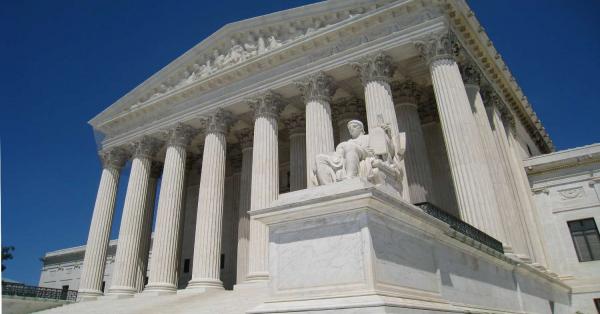Supreme Court to Hear Case on Charity Donor Privacy

The Supreme Court announced Friday that it will hear two related cases that could change the way governments at the state state and national level monitor nonprofit organizations and the people and companies whose donate to them.
Two conservative political activist organizations – Americans for Prosperity Foundation (funded by the Koch brothers) and Thomas More Law Center (a Catholic group) – say California laws requiring charities to provide the names and addresses of major donors scare donors and hurt fundraising.
California Attorney General Xavier Becerra says its laws regarding charities are simply a state version of national regulations on charities enforced by the Internal Revenue Service.
U.S. and state governments that grant tax exemptions to charities qualifying for such exemptions say they need major donor information to protect against fraud or foreign efforts to influence America. But the case claims governments have no compelling need for donor information.
The Court consolidated Americans for Prosperity Foundation v. Becerra and Thomas More Law Center v. Becerra. Becerra, President-elect Joe Biden’s choice for Secretary of Health and Human Services, is a frequent target of conservative groups. Alliance Defending Freedom will argue the case.
Access to MinistryWatch content is free. However, we hope you will support our work with your prayers and financial gifts. To make a donation, click here.
For years, California didn’t strictly enforce its rule. Then, in 2008, came Proposition 8, an amendment banning gay marriage. Money flooded in from out-of-state groups, including Thomas More Law Center. California asked these groups for their major donor information. Some of the information was posted on the internet, allegedly exposing Prop 8 donors to “intimidation, death threats, hate mail, boycotts, and even assassination attempts from ideological opponents.”
Thomas More Law Center refuses to turn over the information to California, and says the state’s requirements violate charities’ and donors’ rights of association and free speech, including anonymity.
Here’s how one attorney described it: “Free speech can be costly these days. States shouldn’t chill donors’ enthusiasm by subjecting their private information to government scrutiny and the all-too-real risk of public disclosure and retaliation.”
Another attorney made his case this way: “Jesus instructed his followers that, when giving to the needy, ‘do not let your left hand know what your right hand is doing.’”
Amicus briefs have come from wide range of groups, including Presidential attorney the Chamber of Commerce of the USA, and the Council on American-Islamic relations, and Jay Sekulow’s American Center for Law and Justice, which said it had already “represented 36 Tea Party and other conservative organizations from20 states that were targeted for discriminatory treatment by the IRS because of their political views.”
One Amicus brief came from two-dozen State Family Policy Councils, a network of 30+ conservative advocacy lobbying groups created in the 1980s by Focus on the Family founder James Dobson, who now runs Family Talk/The James Dobson Family Institute.
The policy councils said they filed their brief “because they are concerned with the growing political trend to use government-compelled donor disclosure as a means of undermining the ability of nonprofits to engage in socially controversial issues by chilling donor association and financial support.”
Financial transparency is enshrined in the standards of the Evangelical Council for Financial Accountability: “Financial disclosure is not only an accepted, expected, and required form of accountability in society at large, but it also represents the even higher standard of openness for Christ-centered organizations. It may be true that public disclosure of financial information is required, in part, to protect the donor public. While this is the reason most often given to justify governmental regulation, the reputation of Christ-centered ministries in general is at stake.”
https://www.ecfa.org/Content/Comment5
But in recent years, some of ECFA’s largest parachurch organizations—including some involved in political activism—have legally declared themselves churches to avoid federal reporting regulations.
In 2018, ECFA told charities to follow the advice of a tax expert: “All affected charities, including out-of-state charities, should review their donor confidentiality policies and disclosures to ensure that their donors are aware of California’s disclosure requirement.”



